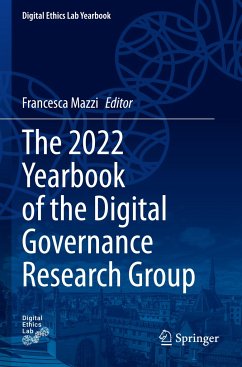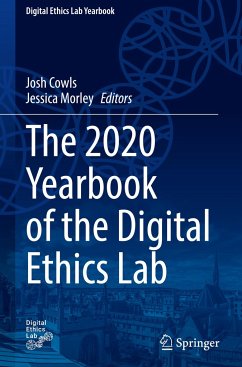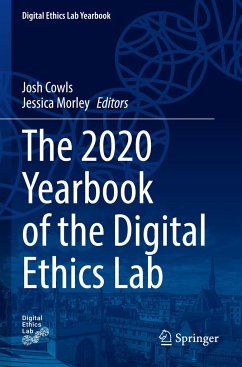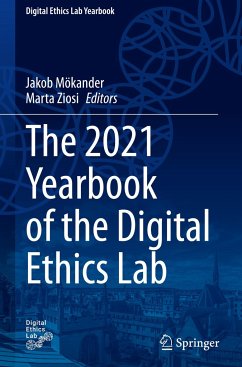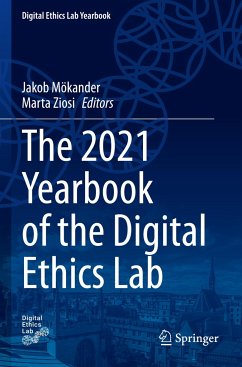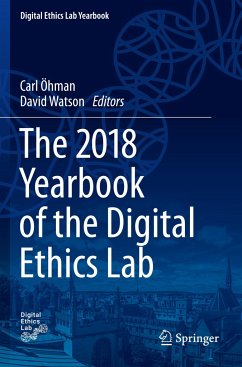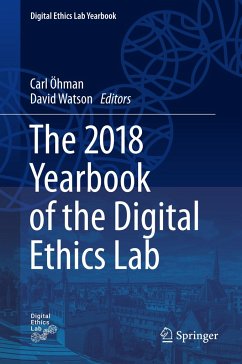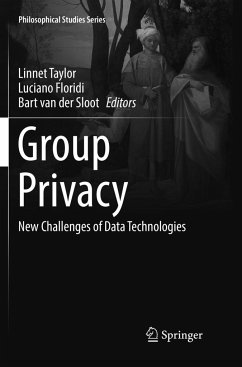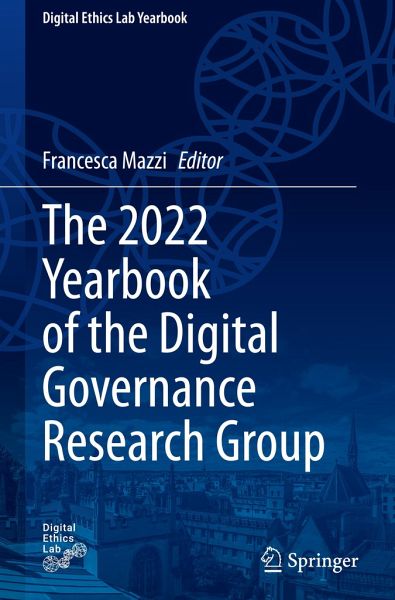
The 2022 Yearbook of the Digital Governance Research Group

PAYBACK Punkte
38 °P sammeln!
This annual edited volume presents an overview of cutting-edge research areas within digital ethics as defined by the Digital Governance Research Group of the University of Oxford. It identifies new challenges and opportunities of influence in setting the research agenda in the field.The 2022 edition of the Yearbook presents research on the following topics: autonomous weapons, cyber weapons, digital sovereignty, smart cities, artificial intelligence for the Sustainable Development Goals, vaccine passports, and sociotechnical pragmatism as an approach to technology. This text appeals to studen...
This annual edited volume presents an overview of cutting-edge research areas within digital ethics as defined by the Digital Governance Research Group of the University of Oxford. It identifies new challenges and opportunities of influence in setting the research agenda in the field.
The 2022 edition of the Yearbook presents research on the following topics: autonomous weapons, cyber weapons, digital sovereignty, smart cities, artificial intelligence for the Sustainable Development Goals, vaccine passports, and sociotechnical pragmatism as an approach to technology. This text appeals to students, researchers, and professionals in the field.
The 2022 edition of the Yearbook presents research on the following topics: autonomous weapons, cyber weapons, digital sovereignty, smart cities, artificial intelligence for the Sustainable Development Goals, vaccine passports, and sociotechnical pragmatism as an approach to technology. This text appeals to students, researchers, and professionals in the field.





